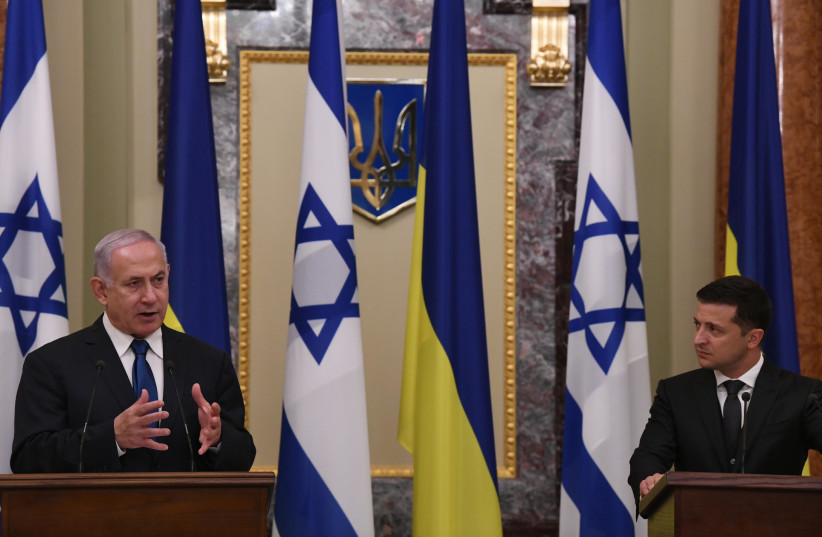Prime Minister Benjamin Netanyahu is exploring the possibility of providing defensive military equipment to Ukraine, a move that is expected to anger the Russians.
He held a discussion Tuesday with top government officials to review the country’s policy to Ukraine in advance of his trip Wednesday to Berlin, where European fears regarding Russia are expected to be on the agenda.
While in Berlin Netanyahu will meet with German Chancellor Olaf Scholtz, following which both are men are expected to hold a joint press conference.
Israel has limited its assistance to Ukraine
Israel to date has limited its assistance to Ukraine mostly to humanitarian and financial aid as well as technical assistance such as the promise of an early alert system.

Ukraine has pressed it to provide it an anti-drone and anti-missile system with President Volodymyr Zelensky specifically asking for the David Sling when he addressed the Munich Security Conference last month.
Israel has not publicly responded to that request. On Tuesday Netanyahu discussed Israel’s Ukraine policy with Foreign Minister Eli Cohen, Defense Minister Yoav Gallant, National Security Adviser Tzachi Hanegbi, Mossad Chief David Barnea, IDF Chief of Staff Herzl Halevi and other top officials. No final decisions were taken.
Israel has been under pressure from the United States and its Western allies to more fully align itself with Ukraine. Israel has feared angering Russia, whose military sits on its northern border with Syria. It needs to maintain its deconfliction agreement with Russia, which allows it to operate in Syrian airspace to attack Iranian military targets in that country.
